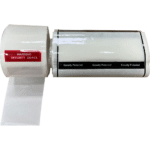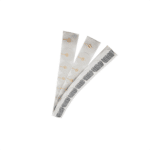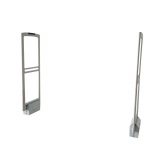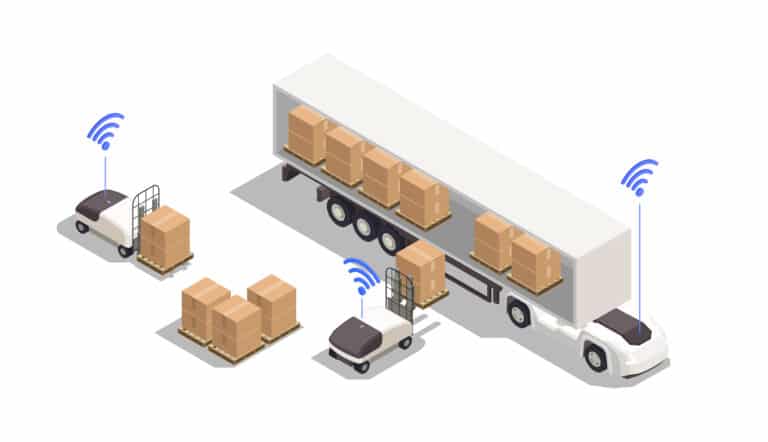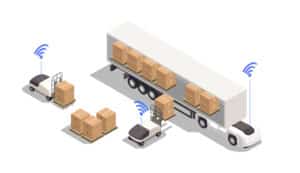In today’s fast-paced and competitive business landscape, streamlining operations and optimizing efficiency is crucial for success. One technology that has revolutionized B2B (Business-to-Business) operations is RFID (Radio Frequency Identification). RFID inlay has proved to be an invaluable tool for businesses in various industries. If you’re looking for ways to optimize your business processes and enhance productivity, read on!
Understanding RFID inlay solutions
RFID inlays are small electronic components that consist of an RFID chip and an antenna. These inlays are embedded into various forms, such as labels, tags, or adhesive stickers, making them flexible and easy to integrate into existing business processes. The RFID technology enables wireless communication between the inlays and RFID readers, providing real-time data capture and transmission.
Effective RFID inlay solutions comprise three main components: the RFID inlays themselves, RFID readers, and supporting software. The inlays act as data carriers, storing unique identification numbers and other relevant information. RFID readers, which can be handheld or fixed, capture the data from the inlays. Supporting software enables the collection, storage, and analysis of the captured data, providing actionable insights to improve operations.
Streamlining supply chain operations
Streamlining supply chain operations is critical for businesses aiming to improve efficiency, reduce costs, and enhance customer satisfaction. In this section, we will explore how these practices optimize seamless operations from procurement to distribution.
Inventory management and tracking
RFID inlay solutions streamline inventory management by enabling real-time, automated tracking of goods throughout the supply chain. Instead of manually scanning barcodes or using outdated paper-based systems, businesses can rely on RFID technology to capture data instantly and accurately. This ensures better visibility into stock levels, reduces inventory discrepancies, and facilitates efficient restocking.
Enhancing traceability and transparency
Implementing RFID inlay solutions enhances the traceability and transparency of products throughout the supply chain. Each item can be tracked individually, documenting its journey from manufacturing to distribution. This level of visibility minimizes the risk of lost or stolen products, ensures compliance with regulations, and enables businesses to quickly identify and address any issues that may arise.
Improving logistics and warehouse operations
Efficient logistics and warehouse operations are vital for businesses to maintain competitive advantage, ensure timely delivery, and meet customer expectations. This section delves into the critical role of optimized logistics and warehouse operations in enhancing overall supply chain efficiency and driving business success.
Automated asset tracking and management
RFID inlays facilitate automated asset tracking, making it easier to locate and manage inventory, equipment, and other valuable assets. With RFID readers strategically placed throughout warehouses or distribution centers, businesses can accurately track the movement of assets in real time. This reduces the time spent on manual searches, minimizes errors, and optimizes the allocation of resources.
Efficiency in receiving and dispatching
Efficient receiving and dispatching operations are critical for maintaining smooth logistics. RFID inlay solutions enable quick and accurate scanning of incoming and outgoing goods, eliminating the need for manual entry and reducing human errors. The automated process saves time, improves order accuracy, and speeds up the overall logistics chain, leading to enhanced customer satisfaction.

Enhancing manufacturing processes
Enhancing manufacturing processes is critical for companies aiming to remain competitive and meet customer demands effectively. In this discussion, we delve into the significance of optimizing manufacturing operations.
Automated work-in-progress tracking
In manufacturing, monitoring the progress of each product throughout the production line is essential for optimizing operations. RFID inlays can be attached to products or components, allowing automated tracking of work-in-progress. This provides manufacturers with valuable insights into production bottlenecks, enabling them to identify areas for improvement and enhance overall efficiency.
Quality control and defect tracking
Maintaining quality standards is crucial in manufacturing. RFID inlays can be used to track each component or assembly, enabling comprehensive quality control. Manufacturers can easily trace the origin of defective products, identify potential quality issues, and take necessary corrective action swiftly. This reduces waste and ensures that only products meeting predefined quality criteria reach the market.
Optimizing retail and inventory control
Optimizing retail and inventory control is essential for businesses striving to meet customer needs while managing costs efficiently. This section will examine the pivotal role of effective retail and inventory management.
Real-time stock monitoring and replenishment
For retailers, real-time stock monitoring and efficient replenishment are key factors in maintaining optimal inventory levels and delivering excellent customer service. RFID inlay solutions enable retailers to track stock levels accurately and receive automated alerts when inventory falls below predetermined thresholds. This proactive approach prevents stockouts, reduces excess inventory, and ensures timely replenishment.
Preventing counterfeiting and unauthorized sales
Counterfeiting and unauthorized sales pose significant challenges for retailers. RFID inlay solutions can be instrumental in combating these issues by providing authentication and anti-counterfeit features. The unique identification numbers stored in the RFID inlays ensure product authenticity and enable businesses to track the movement of their goods, preventing unauthorized sales and protecting brand reputation.

Selecting the right RFID inlay solution
Selecting the right RFID inlay solution is crucial for businesses aiming to leverage advanced technology effectively in their operations. This section will explore the significance of choosing the appropriate RFID inlay solution and provide insights into factors to consider for optimizing performance and achieving business objectives.
Understanding business requirements
To select the right RFID inlay solution, businesses need to evaluate their specific requirements. Factors such as the industry, operational needs, desired level of automation, and budget constraints should be taken into account. Engaging with RFID solution providers and conducting thorough research can help identify the most suitable solution for the business’s unique needs.
Compatibility and integration
Integration with existing systems and infrastructure is crucial for a seamless implementation. Businesses should ensure that the chosen RFID inlay solution is compatible with their current technology stack, including ERP (Enterprise Resource Planning) and SCM (Supply Chain Management) systems. Compatibility and integration minimize disruption and enable a smooth transition to the new system.
Scalability and future-proofing
As businesses evolve, scalability becomes crucial. Opting for an RFID inlay solution that can scale along with the business’s growth ensures long-term success. Whether it’s an expansion in manufacturing capacity, a broader product range, or changes in operational processes, the chosen solution should be flexible enough to accommodate future requirements.
Overcoming challenges and ensuring success
Overcoming challenges and ensuring success is paramount for businesses navigating today’s competitive landscape. Here’s how you can overcome obstacles and implement effective strategies to achieve sustained success in various aspects of business operations.
Data security and privacy
With increased data capture and transmission, businesses must prioritize data security and privacy. Implementing proper access controls, encryption, and secure storage mechanisms is essential to protect sensitive information. Complying with relevant regulations and industry best practices helps ensure data protection and maintain customer trust.
Employee training and adoption
While RFID technology offers numerous benefits, it is essential to provide adequate training to employees for smooth adoption. Employees should understand the new processes, become proficient in using RFID readers, and be aware of the benefits that the technology brings. Engaging employees throughout the implementation process fosters higher acceptance and reduces resistance to change.
Collaborating with RFID solution providers
Collaborating with experienced RFID solution providers can make a significant difference in ensuring a successful implementation. Engaging in a partnership with a trusted provider helps align business goals, address challenges, and customize the solution to meet specific requirements. Regular communication, ongoing support, and frequent system updates ensure long-term success.
Conclusion
In conclusion, the importance of RFID inlay solutions in streamlining B2B operations across industries cannot be overstated. With their ability to enhance efficiency, accuracy, and visibility throughout supply chains, they have become indispensable tools for modern businesses striving for optimization. However, it’s crucial to select a reliable manufacturer to ensure quality and reliability. Asecuri stands out as a trusted provider, offering cutting-edge RFID solutions tailored to diverse industry needs. To experience the full spectrum of benefits that RFID inlay solutions can bring to your B2B operations, choose Asecuri as your partner. Take the next step towards efficiency and success today.


